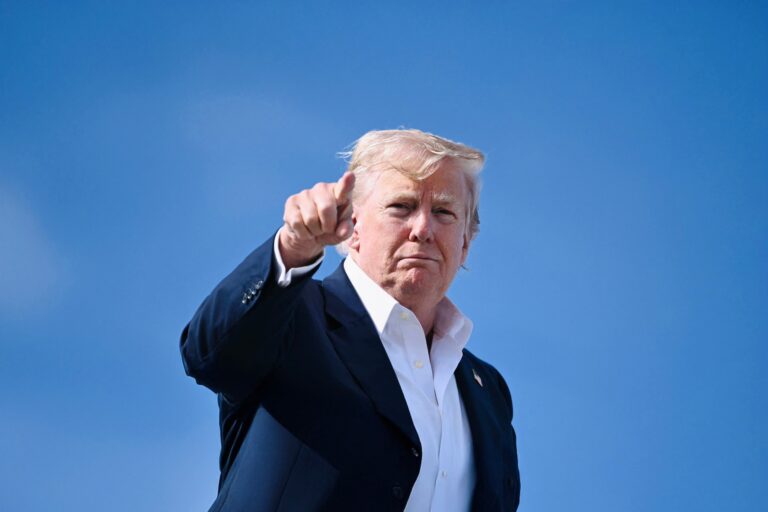President Donald Trump has announced a wide-ranging package of tariffs targeting key imports. From October 1, branded and patented medicines will face a 100 percent duty unless manufacturers operate production sites in the United States.
The plan also sets a 25 percent tariff on heavy-duty trucks and a 50 percent levy on kitchen and bathroom cabinets. Trump revealed the measures on Thursday, saying they are necessary to protect American manufacturing.
On Truth Social, he wrote that a “flood” of imports was overwhelming domestic producers. He said the tariffs would restore balance and safeguard US jobs.
The move came despite warnings from American businesses that new duties could disrupt supply chains and raise consumer costs.
Pharma industry studies the impact
Neil Shearing, chief economist at Capital Economics, said the pharmaceutical tariffs were less sweeping than they appeared. He explained that generic medicines and firms investing in US factories will be exempt.
He added that many major pharmaceutical companies already have US production facilities or are planning to build new ones.
Ireland’s Trade Minister Simon Harris highlighted the August 21 US-EU agreement. He said the deal capped tariffs on European pharmaceutical exports at 15 percent.
UN data shows Britain exported more than six billion dollars’ worth of medicines to the US last year.
A separate June deal between Washington and London pledged “preferential treatment outcomes on pharmaceuticals.”
A UK government spokesperson called the announcement concerning. The spokesperson said Britain would continue direct engagement with US officials in the coming days.
British drugmakers increase US investments
GlaxoSmithKline already operates plants in America. Last week, it pledged 30 billion dollars for US research and manufacturing over the next five years.
AstraZeneca also has American facilities. In July, it announced plans to invest 50 billion dollars in the US by 2030.
William Bain, head of trade policy at the British Chambers of Commerce, said these investments should protect UK companies from new tariffs. He pointed to advanced manufacturing projects already underway.
Several pharmaceutical companies have recently withdrawn investment from Britain, citing an unfavourable climate for the sector.
Jane Sydenham, investment director at Rathbones, said Trump’s tariff agenda was a decisive factor. She argued that uncertainty in US trade policy outweighed concerns about Britain’s weak growth.
Heavy-duty trucks and furniture targeted
Trump confirmed that heavy-duty trucks will face a 25 percent duty. He said the measure would benefit US manufacturers such as Peterbilt and Mack Trucks.
He also announced tariffs on kitchen and bathroom cabinets and other furniture imports. He argued that high import levels were damaging local industries.
From next week, upholstered furniture will face a 30 percent tariff.
Swedish furniture group Ikea said the tariffs complicate its business operations. The company said it is monitoring developments closely.
Tariffs remain central to Trump’s trade agenda
Tariffs continue to be a defining feature of Trump’s second term. In August, broad duties on imports from more than 90 countries came into effect. Washington said the aim was to boost US jobs and strengthen manufacturing.
Earlier rounds had targeted steel, copper, aluminium, cars and vehicle parts.
The US Chamber of Commerce opposed new tariffs this year. It stressed that most truck parts come from Mexico, Canada, Germany, Finland and Japan.
Mexico and Canada together supplied more than half of America’s imports of medium and heavy truck parts last year. The chamber said shifting this production to the US was unrealistic and would push costs higher.
Analysts warn consumers will pay the price
Deborah Elms, trade analyst at the Hinrich Foundation, said the tariffs benefit American producers but are “terrible” for consumers. She predicted that prices will rise sharply.
She explained that the measures cover more products and impose higher rates than Trump’s earlier reciprocal tariffs, which targeted trade imbalances.
Elms added that industry-specific duties could serve as a fallback. They could secure revenue if broader global tariffs are overturned in court.


